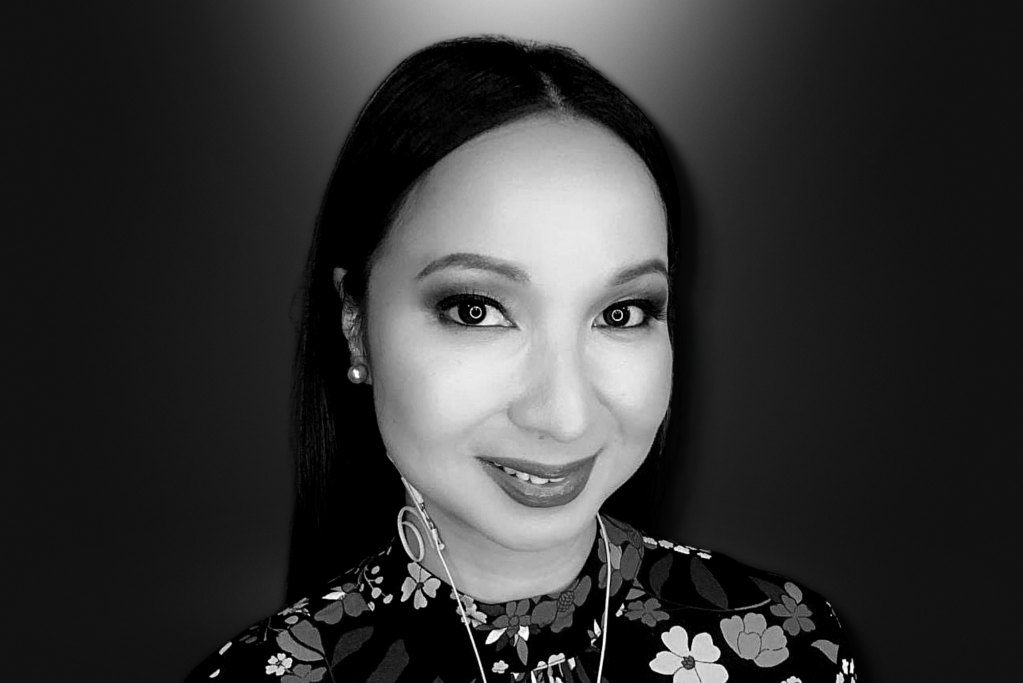IN THIS EPISODE OF EMPOWERED TALKS
Shame. We all feel it. We all experienced it. With Coach Rezza on the show, we discussed the importance of owning our shame & vulnerability and how it can help us live an authentic & empowered life.
LISTEN TO THE EPISODE
ABOUT THE GUEST:

REZZA CUSTODIO- SORIANO is a professional Femme Power Life Coach & CREATRIX Transformologist for Women. She helps women leaders & women professionals to overcome and break repeated issues and patterns of fear, anger and lack of self-confidence.
Follow Coach Rezza
EPISODE HIGHLIGHTS:
ON PERFECTIONISM
ROMA MICLAT
What is your take on perfectionism and do you have any history with the word perfectionism?
REZZA CUSTODIO-SORIANO
I love this question because that’s one of the crutches that I had years ago, probably. Yeah. In my twenties and early thirties. I was struggling with perfectionism because I felt the pressure to always perform or always be the best. I don’t know if it had anything to do about my being the eldest, or was it because the environment that I grew up with was highly competitive.
Or was it because my work environment, back then in corporate, it was always about delivering results. And if you did not do things excellently or perfectly, or you did not do it well, there was, at least for me back then, there was always this fear of being reprimanded. Being thought of as not good enough or being judged as not qualified. Not being good enough for the task, for the role, for the expectations and you, and another one was disappointing, Disappointing other people, especially people in authority.
“perfectionism might be seen as good, but it actually is it mentally and emotionally draining.”
— Rezza Custodio-Soriano
ON SHAME
ROMA MICLAT
In your – opinion, especially for us Filipinos, why are we so afraid to be seen as imperfect, with flaws?
REZZA CUSTODIO-SORIANO
Roma, this conversation is multi-layer or multi-factor because a lot of it stems from SHAME or HIYA in Filipino. So shame or hiya has many dimensions to it, right? Depends on what you say. It’s about saving face, It’s about saving face and looking good in the eyes of people. So it’s not always about perfectionism, but it is… “how will I look in the eyes of others?” or “how will I come across in the eyes of others?”
In the light of shame/hiya, There’s also the fear of judgment, the fear of being talked about behind your back, the fear of chismis (gossip) . There’s a lot of dimensions and a lot of it really is coming from the older generations of what will others say.
Many of the fears are that one, what will my parents say? What will my family say? What will my boss say? My peers? It’s always what others think. And I used to be in that situation as well. I was very, so much in that place where I couldn’t do what I wanted to do because I was afraid of disappointing my parents.
I was afraid of what they would say and what would always ring in my ears at that time was the voice of my mother saying anong sasabihin ni.., et cetera. So that’s when it hit me. It’s the voice and fear of my mom.
That’s when I saw through all the bullshit. That’s when I saw through all the smokes and mirrors and realized….It’s not my issue. it’s theirs.. It’s their generation’s issue. Issues of their fears that would overcome them, right? And that would make them afraid. That’s why a lot of those from the older generations, um, very closed off or maybe in their comfort zone.
Get out of your comfort zone and step into your courage zone – That’s not so much in their generation. It was more of maybe among younger Gen Xers and below.
ROMA MICLAT
And they can’t speak their mind then, but it’s either they’re not allowed or they are afraid to speak what’s on their mind.
REZZA CUSTODIO-SORIANO
Because again, fear of reprimand. Fear of being an outcast, fear of being criticised, rejected. It stems from a lot of fear. And I want to add that shame in particular, shame is very much tied to, for women at least. So for the women listeners out there, shame is also very tied to the identity of a woman.
When I say it’s very tied to an identity of a woman, it’s, I cannot do this because, or if I do this, they might, or I might, I might fail. I might be seen as a rebel. I might be seen as, um, not good. So a lot of the shame, amplifies an identity, a woman that would attach or label upon herself.
“Shame is just a perception. It’s an akala or hinala, but until you come face to face with what is causing the shame or triggering the shame, it’ll never leave.”
— Rezza Custodio-Soriano
ON VulnerabilitY
ROMA MICLAT
What do we mean when we say embrace your shame and your vulnerability?
REZZA CUSTODIO-SORIANO
Okay, so why is vulnerability a scary word or a scary thing for a lot of people, men and women, actually. Not just for the women. Because vulnerability has attached to it a sense of rawness. When I say rawness, rawness is more on, It’s like you’re exposing yourself – flaws and all. You’re exposing yourself the ugliness of it all, the weakness, the flaws, the imperfectness.
Again, you ask yourself what is so scary about revealing your past or situation or whatever drama that you have in your life. What’s so bad about it when you just admit it to yourself and admitted to others, goes back to shame.
It goes back to fear. Fear of judgment, fear of what other people will say. Fear of what other people will, think about you or talk about behind your back and being vulnerable doesn’t look beautiful or it doesn’t look perfect.
But that is also the beauty and power of vulnerability. Being vulnerable means acknowledging this is who I am, but it’s not stopping there.
“How do you overcome the demons in your life, or how do you overcome the devil that would whisper about your past? Remember, it’s always about the past. It’s always about what has been done for.”
— Rezza Custodio-Soriano
Empowered Talks is a podcast show that empowers people to find their voice through self-discovery.
